Why pottery classes are great for stress relief
In our fast-paced world, where stress seems to lurk around every corner, finding effective ways to unwind is essential. One delightful and often overlooked avenue for stress relief is pottery classes. Imagine molding soft, pliable clay with your hands, feeling the coolness and texture as you shape it into something beautiful. This tactile experience not only engages your senses but also serves as a therapeutic escape from the chaos of everyday life. Pottery classes offer a unique blend of creativity, mindfulness, and community, making them a perfect antidote to stress.
When you step into a pottery studio, you enter a sanctuary where the outside world fades away. The smell of clay, the sound of wheels spinning, and the sight of colorful glazes create an atmosphere that invites relaxation. You might wonder, how can something as simple as playing with clay help alleviate stress? Well, engaging in pottery allows you to focus entirely on the task at hand, promoting a state of mindfulness that is hard to achieve in our distraction-filled lives.
Moreover, pottery isn't just about creating; it's about the journey of creation. Each piece you make tells a story of your emotions, thoughts, and experiences. The act of shaping clay can be incredibly cathartic, allowing you to express feelings that may be difficult to articulate. Whether you're crafting a simple bowl or an intricate vase, the process itself can provide a profound sense of accomplishment and joy.
In addition to the emotional benefits, pottery classes also foster a sense of community. You'll find yourself surrounded by like-minded individuals who share a passion for creativity. This camaraderie can lead to lasting friendships, making the experience even more enjoyable. So, not only do you get to work with your hands and unleash your creativity, but you also connect with others who understand the therapeutic power of art.
As you delve deeper into pottery, you'll discover various techniques that challenge and excite you. From wheel-throwing to hand-building, each method offers a new way to engage with the medium. Learning these skills can be incredibly rewarding, as you witness your abilities grow and evolve. Plus, personalizing your creations allows you to infuse your personality into each piece, making the process even more meaningful.
In summary, pottery classes are not just about creating art; they are a holistic approach to stress relief. By blending creativity, mindfulness, and community, these classes provide a unique escape from the pressures of daily life. So why not give it a try? You might just find that working with clay is the perfect way to unwind and rediscover your inner peace.
- What should I wear to pottery class?
It's best to wear comfortable clothes that you don't mind getting a bit dirty. Aprons can also help protect your clothing from clay and glazes. - Do I need any prior experience to join a pottery class?
No prior experience is necessary! Most classes welcome beginners and provide instruction tailored to your skill level. - How long does a typical pottery class last?
Classes usually last between 1 to 3 hours, depending on the studio and the specific course structure. - Can pottery help with anxiety?
Yes! The meditative nature of working with clay can help reduce anxiety and promote relaxation.
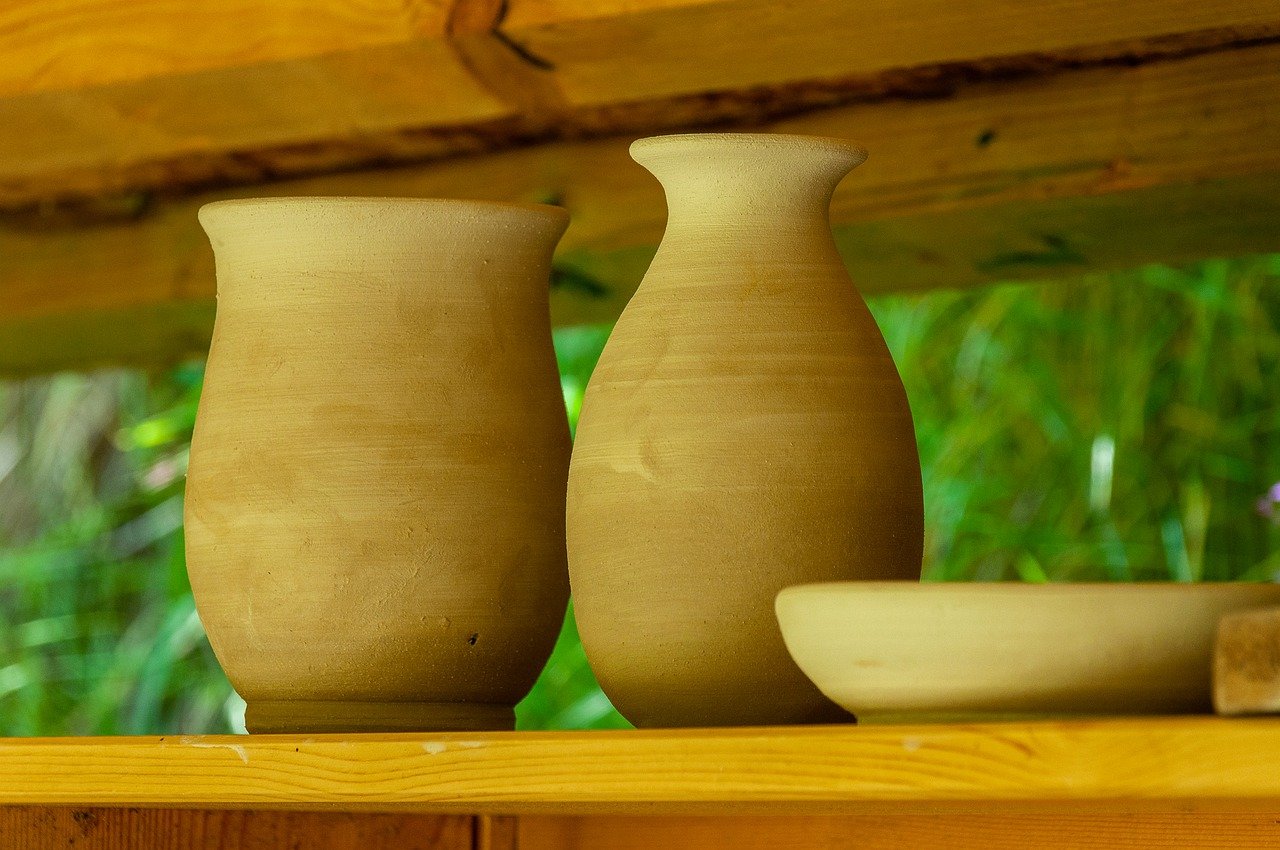
The Therapeutic Benefits of Pottery
Engaging in pottery offers a myriad of therapeutic benefits that can significantly enhance one’s mental and emotional well-being. Imagine sitting at a potter's wheel, your hands immersed in cool, pliable clay, as the world outside fades away. This tactile experience can be incredibly soothing, acting as a form of natural therapy for those grappling with stress, anxiety, or the hustle and bustle of daily life. The simple act of molding and shaping clay allows individuals to channel their feelings and thoughts into something tangible, creating a profound sense of relief.
One of the most notable benefits of pottery is its ability to promote stress reduction. When you focus on the task at hand, your mind is diverted from worries and negative thoughts. This immersive experience is akin to a mini-vacation for your brain, offering a much-needed escape. In fact, studies have shown that engaging in creative activities like pottery can lower cortisol levels, the hormone that your body produces in response to stress. So, the next time you feel overwhelmed, consider reaching for that clay instead of that chocolate bar!
Another significant aspect of pottery is the improved focus it fosters. As you work with the clay, your attention is drawn to the textures, the shapes, and the movements of your hands. This heightened focus not only enhances your skills but also cultivates a sense of mindfulness. Mindfulness, in this context, means being fully present in the moment, which can lead to a stronger connection with your inner self and a greater appreciation for the creative process.
Moreover, pottery is an excellent way to enhance emotional well-being. The act of creating something beautiful can boost your self-esteem and provide a sense of accomplishment. Each piece you craft, whether it’s a simple bowl or an intricate vase, serves as a testament to your creativity and effort. This sense of achievement can be incredibly empowering, especially for individuals who may struggle with feelings of inadequacy or self-doubt.
To sum it up, the therapeutic benefits of pottery extend beyond mere creativity. They encompass stress reduction, improved focus, and enhanced emotional well-being, all of which contribute to a more balanced and fulfilling life. So, why not give it a try? Grab some clay, find a local pottery class, and let your hands do the talking!
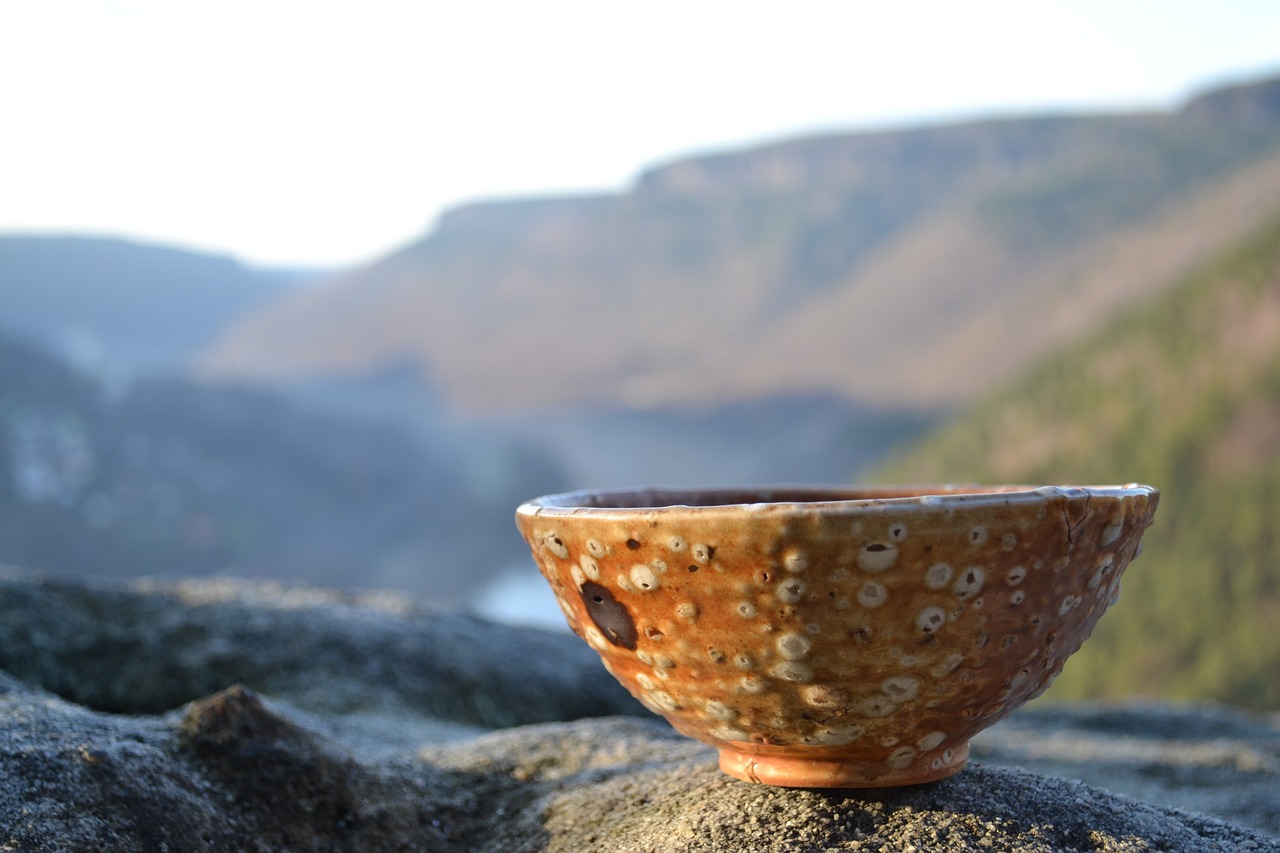
Mindfulness Through Clay
Have you ever found yourself lost in the moment, completely absorbed in an activity that makes time fly? Pottery has that magical ability to draw you in and help you escape the chaos of everyday life. When you sit down at a pottery wheel or start molding clay with your hands, it’s like you’re entering a different world—a world where your worries fade away, and all that matters is the clay and your creativity. This is the essence of mindfulness through clay.
Mindfulness is all about being present, fully engaged in the here and now. Pottery encourages this state of awareness in several ways. First, the tactile experience of working with clay demands your full attention. As you knead, shape, and sculpt, you become acutely aware of the texture of the clay, the pressure of your fingers, and the rhythm of your movements. It’s almost like a dance between you and the material, where every touch matters. This connection not only grounds you but also brings a sense of peace and tranquility that is hard to find elsewhere.
Moreover, pottery provides an opportunity to disconnect from the digital world. In a time when notifications and screens dominate our lives, engaging with clay offers a refreshing break. You can leave your phone behind and immerse yourself in the creative process. This disconnection can be liberating, allowing your mind to wander freely without the constant interruptions of modern technology.
To truly embrace mindfulness while working with clay, consider the following tips:
- Focus on Your Breathing: As you work, take a moment to pay attention to your breath. Inhale deeply and exhale slowly, letting go of any tension.
- Embrace Imperfections: Pottery is all about trial and error. Allow yourself to make mistakes and view them as part of the creative journey.
- Enjoy the Process: Instead of fixating on the final product, immerse yourself in each step of the creation. Each moment spent with the clay is valuable.
As you practice mindfulness through clay, you may find that your stress levels decrease, and a sense of calmness envelops you. It’s like a form of active meditation, where the repetitive motions of molding and shaping help to quiet the mind. The act of creating becomes a sanctuary—a safe space where thoughts can flow freely, and creativity can thrive.
In essence, pottery is not just about making beautiful objects; it’s a journey into self-discovery and mindfulness. With every piece you create, you’re not only shaping clay but also reshaping your mental state. So, why not give it a try? Dive into the world of pottery and experience the profound mindfulness that comes with it.
Q: Do I need previous experience to join a pottery class?
A: Absolutely not! Pottery classes are designed for all skill levels, from beginners to advanced. Instructors will guide you through the basics and help you develop your skills.
Q: What should I wear to a pottery class?
A: It’s best to wear comfortable clothing that you don’t mind getting dirty. Clay can be messy, so consider wearing an apron or old clothes.
Q: How long does it take to create a piece of pottery?
A: The time it takes can vary depending on the complexity of the piece and the techniques used. Generally, a simple piece can take a few hours, while more intricate works may take several sessions.
Q: Is pottery a good way to relieve stress?
A: Yes! Many people find that working with clay is a therapeutic experience that helps reduce stress and promotes relaxation.
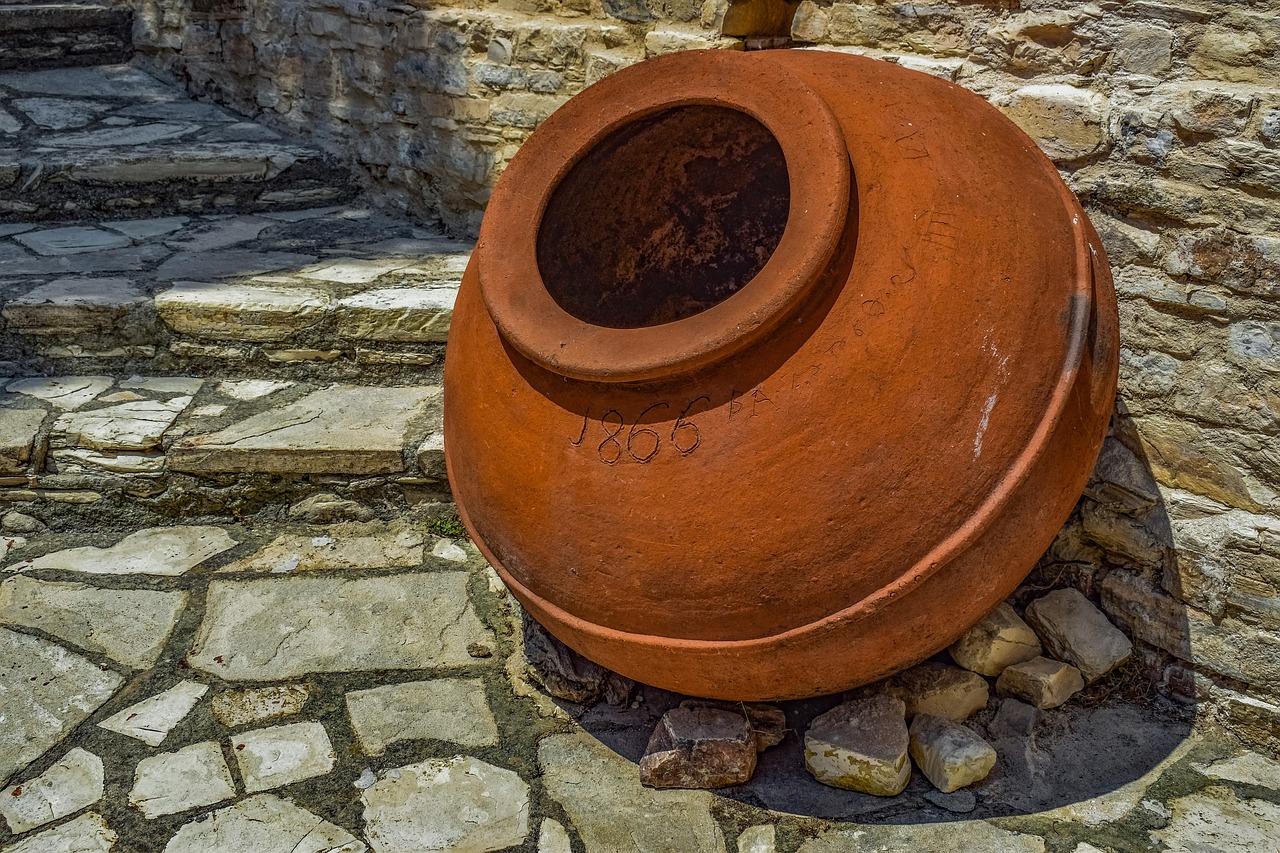
Fostering Creativity
Creating pottery is not just about molding clay into shapes; it’s a vibrant dance of imagination and self-expression. When you step into a pottery class, you’re opening a door to a world where your creativity can flourish. The process of working with clay allows you to explore your artistic side in ways that you might not have thought possible. Have you ever felt that rush of excitement when your hands transform a lump of clay into something beautiful? That’s the magic of pottery!
One of the most delightful aspects of pottery is the freedom it offers. Unlike other forms of art where you may feel constrained by rules or techniques, pottery encourages you to embrace your unique style. Whether you prefer the organic shapes of hand-built pottery or the precision of wheel-throwing, the possibilities are endless. This freedom can be incredibly liberating, allowing you to express your thoughts and feelings in a tangible form. It’s almost like having a conversation with the clay, where you can share your innermost emotions without saying a word.
Moreover, the act of creating pottery can lead to a significant boost in self-esteem. As you shape your piece, you witness your progress firsthand. Each successful creation serves as a reminder of your capabilities, fostering a sense of accomplishment. This can be particularly empowering for those who may struggle with self-doubt. The tactile nature of clay allows you to engage with your creativity physically, which can be a refreshing change from more traditional forms of artistic expression.
To further enhance this creative journey, many pottery classes encourage experimentation. You might find yourself trying out different glazes, textures, and forms, which can ignite new ideas and techniques. This process of exploration is crucial; it not only hones your skills but also keeps the creative juices flowing. Imagine the thrill of discovering a new technique that transforms your work into something extraordinary! Every class becomes an opportunity to learn, grow, and push the boundaries of your creativity.
In addition to personal expression, pottery fosters a sense of community among participants. Sharing your creations and techniques with others can lead to collaborative projects that spark even more creativity. This social aspect can be incredibly enriching, as you learn from one another and inspire each other to take risks and try new things. It’s like being part of a creative family, where everyone supports each other’s artistic endeavors.
In summary, pottery is a powerful avenue for fostering creativity. It allows individuals to express themselves freely, boosts self-esteem, encourages experimentation, and builds a supportive community. So, if you’re looking for a way to unleash your creative potential, consider signing up for a pottery class. You might just find that the clay becomes an extension of your imagination!
- Do I need prior experience to join a pottery class? No, most pottery classes cater to all skill levels, from beginners to advanced artists.
- What materials do I need to bring? Typically, all materials are provided by the studio, but it’s best to check with your instructor beforehand.
- How long does it take to complete a pottery piece? The time can vary depending on the complexity of the piece, but most projects can be completed in a few classes.
- Can pottery really help with stress relief? Absolutely! The tactile nature of clay and the focus required can significantly reduce stress and promote relaxation.
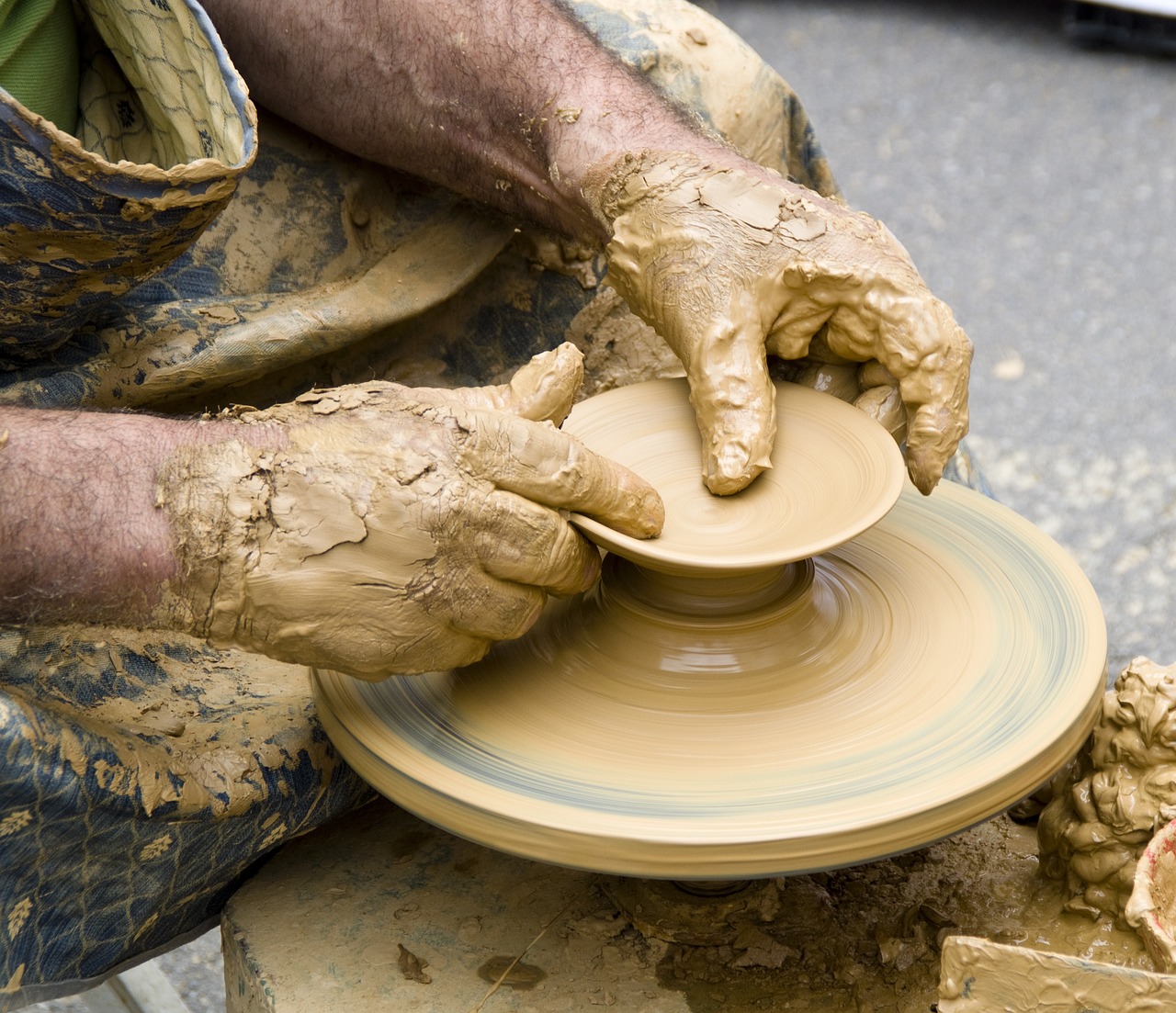
Exploring Different Techniques
When it comes to pottery, the world is your oyster! There are so many techniques to explore, each offering a unique way to interact with clay and express your creativity. Whether you're a novice or a seasoned potter, trying out different methods can be both challenging and incredibly rewarding. One of the most popular techniques is hand-building, which involves shaping the clay using your hands and simple tools. This method allows for a lot of freedom and creativity, as you can build anything from functional pieces like bowls and mugs to abstract sculptures. It’s almost like playing with a giant, squishy puzzle that you get to create from scratch!
Another fascinating technique to delve into is wheel-throwing. This method involves using a potter's wheel to shape the clay into symmetrical forms. At first, it might feel a bit like trying to ride a bike for the first time—wobbly and a little chaotic. But once you get the hang of it, the feeling of creating a perfectly centered pot is exhilarating. The wheel allows for a different kind of precision and elegance, making it a favorite among many pottery enthusiasts.
In addition to these, there are also specialized techniques such as slab building and coil building. Slab building involves rolling out flat pieces of clay and then assembling them to create shapes, while coil building uses long strips of clay to build up walls. Each method has its own charm and can lead to stunning results. Plus, experimenting with these techniques not only enhances your skills but also deepens your connection with the medium. It’s like discovering new colors on a painter’s palette—each technique brings its own flavor to your creations!
For those who love to push boundaries, there’s also the option of combining techniques. Imagine starting with a hand-built base and then adding wheel-thrown elements on top—this fusion can lead to truly unique works of art. The possibilities are endless, and every class or workshop can introduce you to new methods and ideas. So, don’t be afraid to get your hands dirty and try something new! After all, pottery is all about exploration and personal expression.
To give you a clearer picture of these techniques, here's a quick comparison:
| Technique | Description | Best For |
|---|---|---|
| Hand-Building | Shaping clay using hands and tools. | Creative freedom and unique shapes. |
| Wheel-Throwing | Using a potter's wheel to create symmetrical forms. | Precision and elegance. |
| Slab Building | Rolling out flat pieces of clay and assembling. | Architectural designs and flat surfaces. |
| Coil Building | Building up walls using long strips of clay. | Textured and organic shapes. |
In conclusion, exploring different pottery techniques can open up a world of creativity and personal expression. Each method has its own set of challenges and rewards, making the journey of learning pottery a truly enriching experience. So, why not grab some clay and see where your creativity takes you? You might just discover a new passion!
Q: Do I need any prior experience to join a pottery class?
A: Not at all! Pottery classes are designed for all skill levels, from complete beginners to seasoned artists. Everyone is welcome!
Q: What should I bring to my first pottery class?
A: Most classes provide all the necessary materials, but it's a good idea to wear old clothes and bring an apron. You might also want to bring a notebook to jot down any tips or techniques you learn!
Q: How long does it take to complete a pottery piece?
A: The time varies depending on the complexity of the piece and the technique used, but typically, you can expect to spend several hours to a few sessions on a single project.
Q: Can pottery be a solo activity?
A: While many enjoy the social aspect of pottery classes, you can absolutely practice pottery on your own. It can be a wonderfully meditative and personal experience!
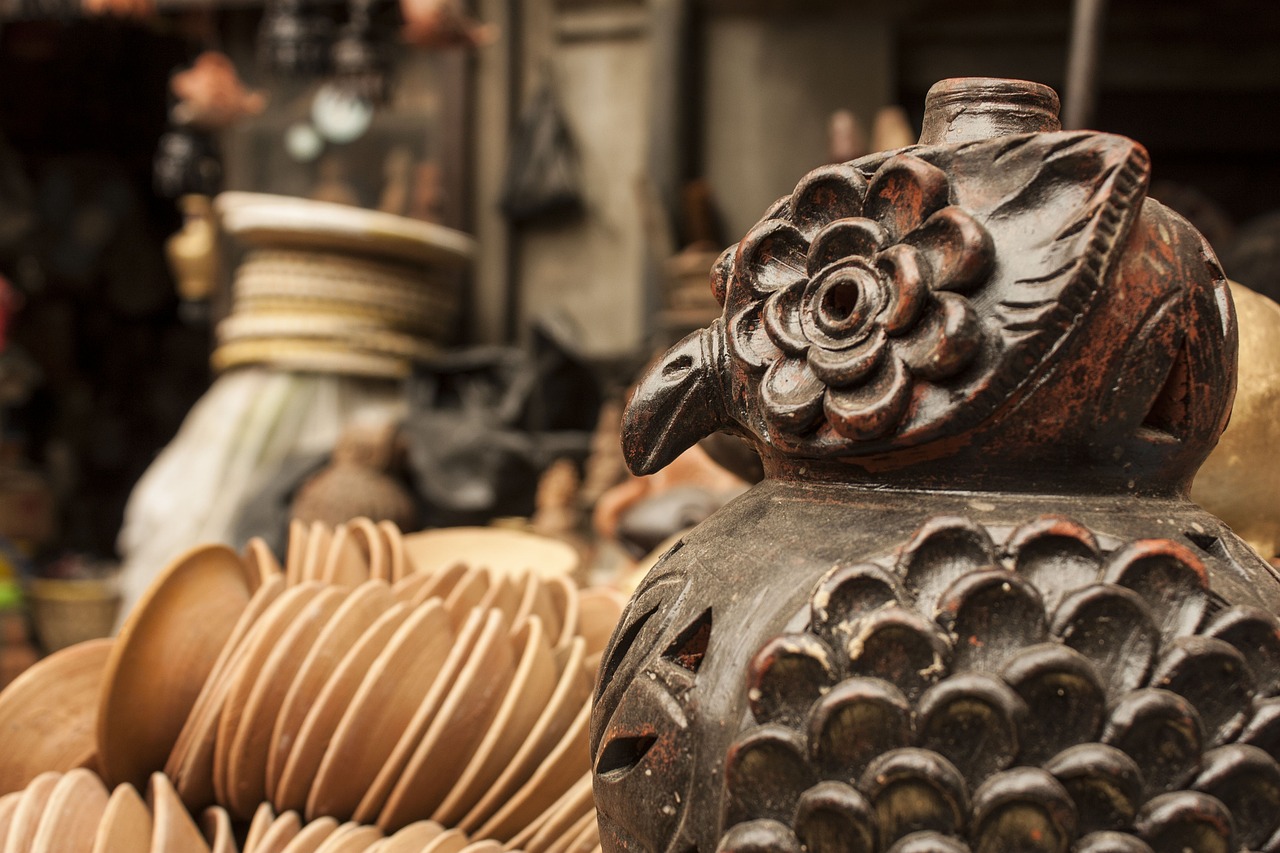
Personalizing Your Creations
When it comes to pottery, one of the most exciting aspects is the ability to personalize your creations. This process is not just about shaping clay; it’s about infusing your personality, emotions, and experiences into each piece you create. Imagine molding a bowl that reflects your mood or crafting a vase that tells a story of your journey. The beauty of pottery lies in its flexibility and the unique touch you can add to every piece.
Personalization can take many forms. You might choose to incorporate specific colors that resonate with you, or perhaps you’ll opt for patterns that evoke cherished memories. The choices are endless, and each decision you make transforms your pottery into a reflection of who you are. This connection to your work can significantly enhance the therapeutic experience, making it not just a hobby but a form of self-expression and emotional release.
Moreover, the act of personalizing your pottery allows you to experiment with different techniques and styles. For instance, you might want to try:
- Engraving Designs: Carving symbols or words into your clay can add a layer of meaning to your work.
- Using Unique Glazes: Selecting glazes that resonate with your personal aesthetic can make your pieces stand out.
- Incorporating Textures: Adding different textures can change the way your pottery feels and looks, making it truly one-of-a-kind.
This level of personalization not only makes the pottery more special but also creates a deeper emotional connection to your work. Each piece becomes a canvas for your thoughts and feelings, a way to communicate without words. As you shape the clay, you might find that it serves as a mirror for your inner self, revealing aspects of your personality that you hadn’t fully acknowledged before.
In essence, personalizing your pottery is about embracing your creativity and allowing it to flourish. It’s an opportunity to break free from conventional norms and explore what makes you unique. Whether you’re crafting a simple mug or an intricate sculpture, the process of adding your personal touch can be incredibly fulfilling. So, the next time you sit down at the pottery wheel or with a lump of clay, think about what you want to express. Your creations will not only be beautiful but will also carry a piece of your heart within them.
Q: Do I need prior experience to join a pottery class?
A: No, pottery classes are designed for all skill levels, from beginners to advanced potters. Instructors will guide you through the basics and help you develop your skills.
Q: What materials do I need for pottery?
A: Most classes provide the necessary materials, including clay, tools, and glazes. However, you may want to bring an apron and some old towels to keep your workspace tidy.
Q: How long does it take to complete a pottery piece?
A: The time can vary based on the complexity of the piece and the techniques used. Simple items may take a few hours, while more intricate works can take several sessions.
Q: Can pottery be therapeutic for everyone?
A: Yes! Pottery can be a therapeutic outlet for anyone, regardless of age or background. The process of working with clay can help reduce stress and foster mindfulness.

Building Community
One of the most rewarding aspects of participating in pottery classes is the opportunity to build a sense of community among fellow enthusiasts. When you step into a pottery studio, you’re not just entering a space filled with clay and tools; you’re joining a vibrant group of individuals who share a common interest in creativity and self-expression. This shared passion creates a unique bond that can lead to lasting friendships and support systems.
As you work side by side with others, you’ll find that the pottery wheel becomes a catalyst for connection. Conversations flow naturally, often starting with a simple question about techniques or favorite styles. This warm atmosphere encourages participants to share their experiences, frustrations, and triumphs, creating a sense of camaraderie that enhances the overall experience. Who knew that shaping clay could also shape friendships?
Moreover, the collaborative nature of pottery classes fosters a supportive environment where everyone is encouraged to explore their creativity without judgment. Whether you’re a beginner or a seasoned potter, the encouragement from your peers can be incredibly uplifting. You might find yourself inspired by someone’s unique approach to glazing or their innovative use of texture. This exchange of ideas not only enriches your own practice but also strengthens the community as a whole.
In addition, many pottery studios organize events such as workshops, exhibitions, and community projects, providing even more avenues for connection. These gatherings allow individuals to showcase their work, share techniques, and celebrate each other’s progress. Engaging in these activities can deepen your sense of belonging and make the art of pottery feel even more fulfilling.
Ultimately, the community built through pottery classes extends beyond the studio walls. Participants often find themselves supporting each other in various aspects of life, from celebrating personal milestones to navigating challenges. The bonds formed in this creative space can lead to a network of friends who uplift and inspire one another, making the journey of learning pottery not just an individual pursuit, but a shared adventure.
- What should I wear to a pottery class? It's best to wear comfortable clothes that you don’t mind getting dirty, along with closed-toed shoes.
- Do I need previous experience to join a pottery class? Not at all! Classes are typically designed for all skill levels, so beginners are welcome.
- How long do pottery classes usually last? Classes can vary in length, but they typically last between 1.5 to 3 hours.
- What materials do I need to bring? Most studios provide all the necessary materials, but it's a good idea to check with your instructor beforehand.
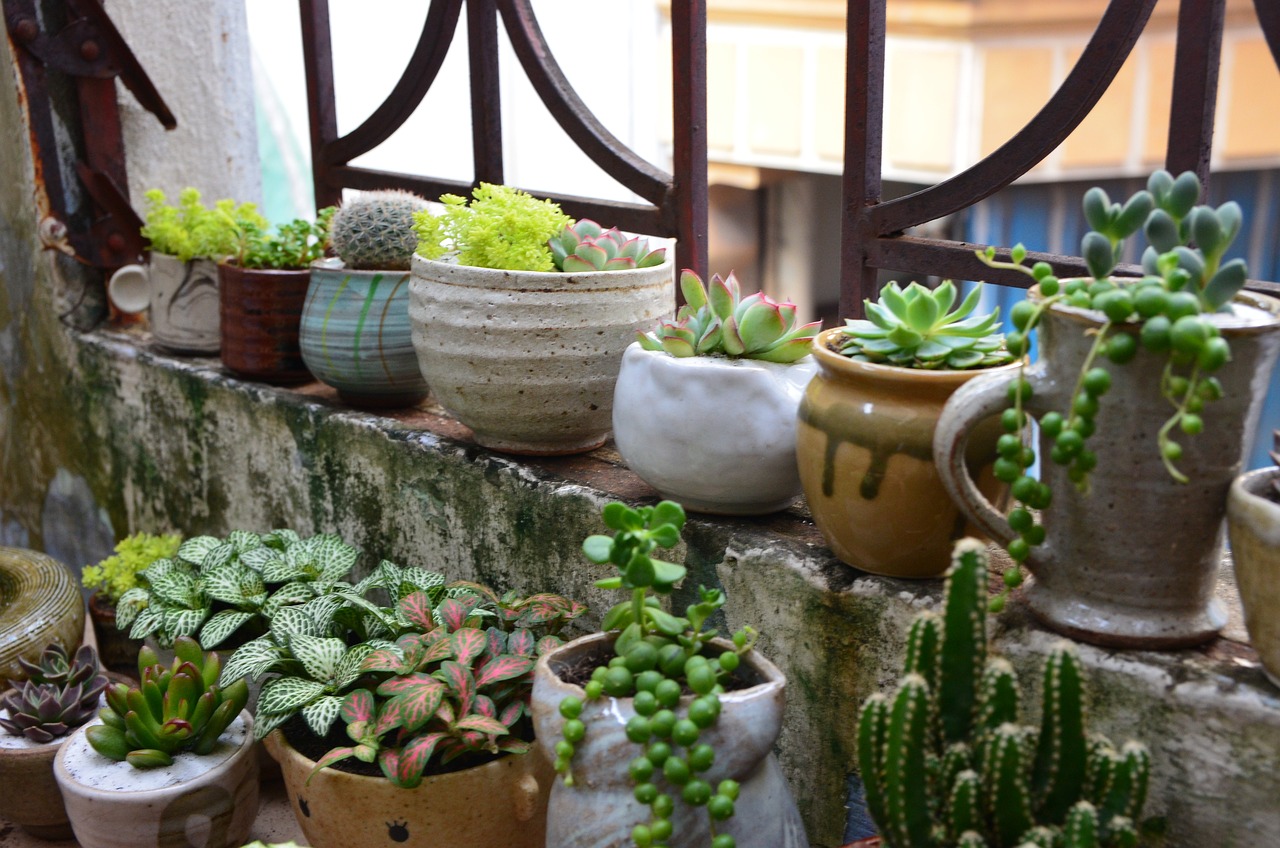
Physical Benefits of Pottery
When you think about pottery, your mind might immediately jump to the artistic and creative aspects. However, there’s a whole world of physical benefits that comes along with this engaging craft. The act of shaping and molding clay is not just therapeutic for the mind; it also provides a workout for your body. From improving fine motor skills to enhancing hand-eye coordination, pottery offers a unique blend of physical engagement and mental relaxation.
One of the most significant physical benefits of pottery is the improvement of fine motor skills. As you knead, roll, and shape the clay, you are engaging small muscle groups in your hands and fingers. This is especially beneficial for children, who are still developing these skills, as well as for older adults looking to maintain their dexterity. The intricate movements involved in pottery can help refine these skills, which can translate into greater ease in everyday tasks, such as writing or using utensils.
Furthermore, pottery can enhance your hand-eye coordination. When you’re working on the potter’s wheel, for example, your hands must work in harmony with your eyes to create a balanced piece. This dynamic interaction can improve your overall coordination, which is crucial for many activities in daily life. Imagine the satisfaction of seeing your creation come to life while simultaneously honing your physical abilities!
Another aspect to consider is the repetitive motions involved in pottery. Much like any form of exercise, these movements can lead to increased strength and flexibility in your hands and wrists. Over time, you may find that you can work with the clay for longer periods without fatigue, which is a testament to the physical conditioning that pottery provides. It’s akin to lifting weights; the more you practice, the stronger you become!
Moreover, engaging in pottery can also promote better posture. When you’re seated at a pottery wheel or working at a table, you naturally become more aware of your body positioning. This awareness can lead to better posture habits, reducing the risk of discomfort or injury that often arises from poor posture in other activities. So, while you’re busy crafting your masterpiece, you’re also taking steps to improve your physical well-being.
In summary, pottery is not just about creating beautiful pieces; it’s a multifaceted activity that offers numerous physical benefits. Whether you’re looking to enhance your fine motor skills, improve hand-eye coordination, or simply enjoy a new form of exercise, pottery has something to offer everyone. So why not roll up your sleeves, get your hands dirty, and discover the physical advantages of this timeless craft?
- What age group can benefit from pottery classes?
Pottery classes are suitable for all age groups, from children to seniors. The skills learned can be adapted to different abilities. - How often should I practice pottery to see physical benefits?
Regular practice, even just once a week, can lead to noticeable improvements in fine motor skills and hand-eye coordination. - Do I need any prior experience to join a pottery class?
No prior experience is necessary! Most classes cater to beginners and provide all the materials and guidance you need.
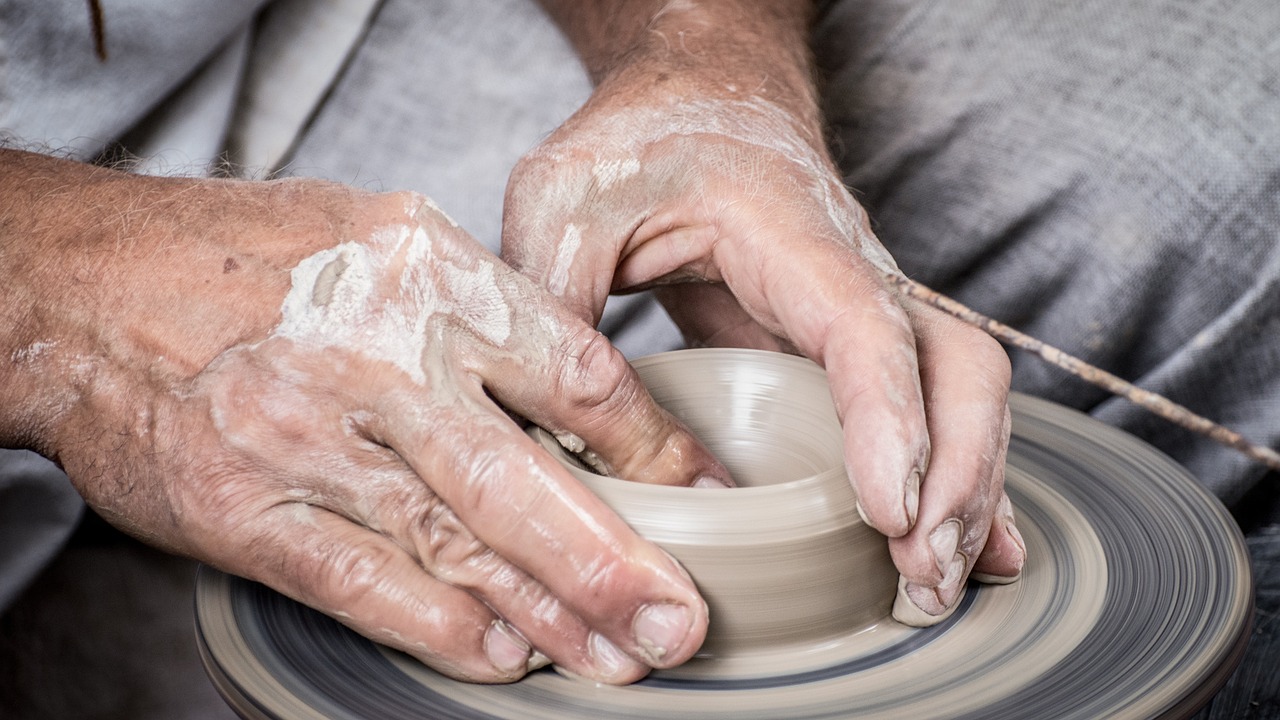
Improving Fine Motor Skills
When you step into a pottery class, it's not just about shaping clay into beautiful forms; it's also about enhancing your fine motor skills. You might be wondering, what exactly does that mean? Well, fine motor skills are the small movements that require precision and coordination, primarily involving the hands and fingers. Think about how often you use these skills in your daily life—everything from typing on your phone to buttoning your shirt relies on them. Pottery, with its intricate processes, provides a fantastic opportunity to refine these skills.
As you mold and shape the clay, you engage in a series of delicate movements that can significantly improve your dexterity. For instance, when you're pinching, rolling, or carving the clay, you're not just creating art; you're also training your fingers to work more effectively. This is particularly beneficial for individuals of all ages, from children developing their coordination to older adults looking to maintain their agility. The tactile experience of clay can be both engaging and rewarding, making it an ideal medium for honing these essential skills.
Moreover, pottery requires a level of concentration and control that can be likened to playing a musical instrument. Just as a pianist must develop finger strength and coordination to play beautifully, a potter must cultivate similar skills to create stunning pieces. The more you practice, the more you’ll notice improvements not only in your pottery but also in everyday tasks. It’s like a workout for your fingers!
To illustrate this point further, here’s a brief overview of how pottery enhances fine motor skills:
| Activity | Skill Developed |
|---|---|
| Pinching Clay | Strengthens grip and finger coordination |
| Rolling Clay | Improves hand-eye coordination |
| Carving Designs | Enhances precision and control |
| Throwing on the Wheel | Develops overall hand dexterity |
In addition to these physical benefits, the act of creating pottery can also have a profound impact on your mental well-being. The focus required to shape the clay can serve as a form of mindfulness, allowing you to disconnect from daily stressors and immerse yourself in the moment. You might find that while you’re busy perfecting your clay creation, your worries fade into the background, making room for a sense of calm and accomplishment.
So, if you're looking for a fun and engaging way to improve your fine motor skills while also enjoying a therapeutic experience, pottery classes might just be the perfect fit for you. Not only will you walk away with unique pieces of art, but you'll also notice a marked improvement in your dexterity and coordination, making those everyday tasks feel a little easier. It’s a win-win situation!
- What age group can benefit from pottery classes? Pottery classes are suitable for all ages, from children to seniors, providing a fun way to enhance fine motor skills.
- Do I need prior experience to join a pottery class? No prior experience is necessary! Most classes cater to beginners and provide step-by-step guidance.
- How often should I practice pottery to see improvements? Regular practice, even just once a week, can lead to noticeable improvements in your skills and confidence.
- Can pottery help with stress relief? Absolutely! The process of working with clay is meditative and can significantly reduce stress levels.
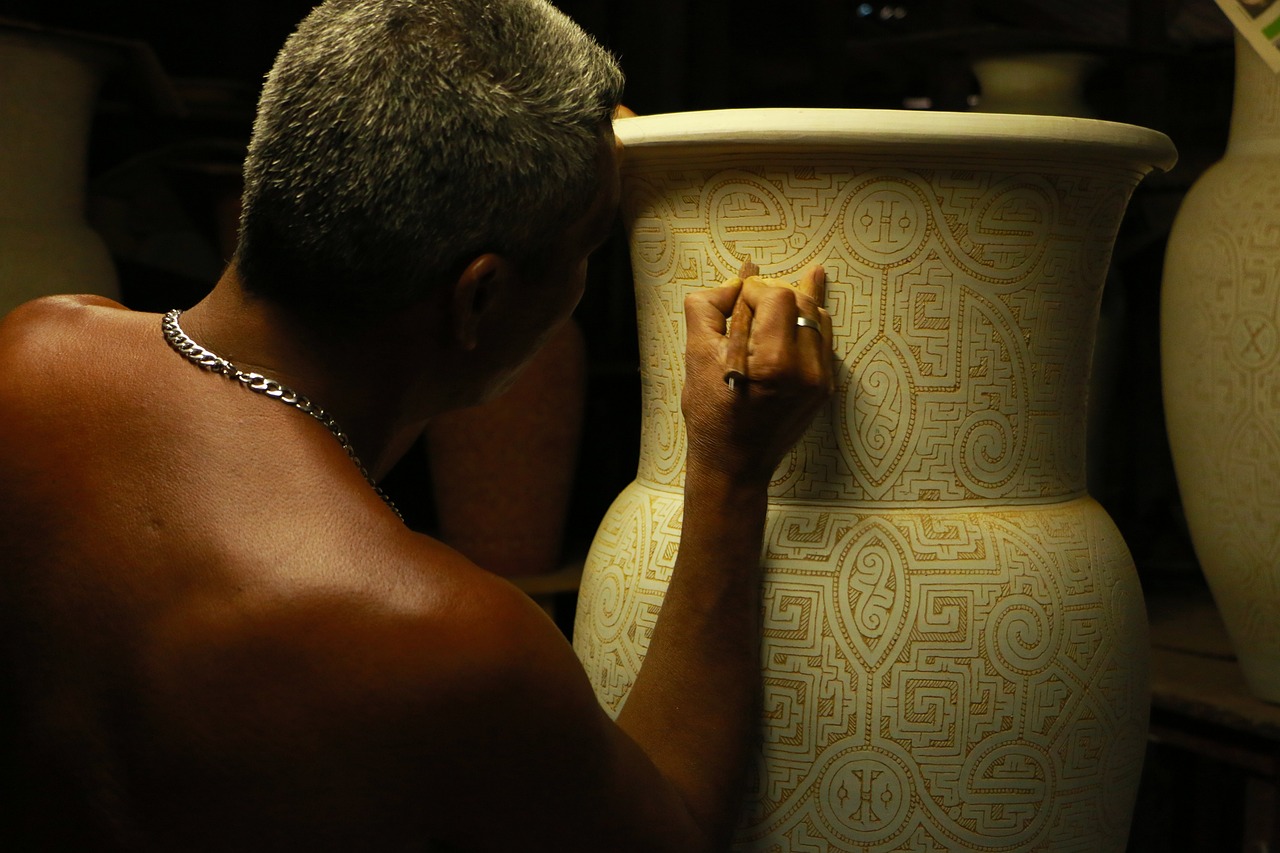
Enhancing Relaxation Techniques
Pottery isn't just about creating beautiful pieces; it's also a fantastic way to enhance your relaxation techniques. When you sit down at the pottery wheel or start molding clay with your hands, you're engaging in a process that can feel almost meditative. The repetitive motions of kneading, shaping, and smoothing the clay can help clear your mind and allow you to focus solely on the task at hand. This focus can lead to a state of flow, where time seems to disappear, and all your worries fade into the background.
Imagine being in a serene environment, surrounded by the earthy scent of clay and the sound of gentle music playing in the background. As you immerse yourself in the creative process, your mind begins to quiet, and you may find yourself breathing more deeply. This deep breathing is essential for relaxation, as it helps lower your heart rate and reduces feelings of anxiety. Pottery can serve as a form of active meditation, where the act of creation becomes a pathway to inner peace.
Moreover, pottery encourages you to be present in the moment. When you’re focused on shaping your piece, you’re not worrying about the past or the future; you’re simply enjoying the now. This mindfulness is crucial for reducing stress and enhancing your overall well-being. To illustrate this point, consider the following benefits:
| Benefit | Description |
|---|---|
| Mindfulness | Engaging fully in the creative process helps you stay present and reduces anxiety. |
| Deep Breathing | Focusing on your pottery work encourages deeper and more relaxed breathing patterns. |
| Flow State | The repetitive actions of pottery can help you achieve a flow state, promoting relaxation. |
In addition to the mental benefits, the physical aspect of working with clay can also enhance relaxation. The tactile sensation of molding the clay can be soothing, akin to a stress ball in your hands. This physical engagement can stimulate the release of endorphins, the body's natural feel-good hormones, further aiding in stress relief.
So, whether you're a seasoned potter or a complete beginner, the act of working with clay can be a transformative experience. Not only does it provide a creative outlet, but it also equips you with valuable relaxation techniques that can be applied in everyday life. Next time you find yourself feeling overwhelmed, consider heading to a pottery class. You might just discover a new favorite way to unwind!
- What should I wear to a pottery class? It's best to wear comfortable clothes that you don't mind getting dirty, as clay can be messy!
- Do I need prior experience to join a pottery class? Absolutely not! Most classes cater to all skill levels, from beginners to advanced potters.
- How long does a typical pottery class last? Classes usually range from 1 to 3 hours, depending on the studio and the project.
- Can pottery really help reduce stress? Yes! The creative process and tactile nature of working with clay can significantly enhance relaxation and mindfulness.
Frequently Asked Questions
- What are the main benefits of taking pottery classes?
Pottery classes offer a plethora of benefits, including stress relief, improved focus, and enhanced emotional well-being. The tactile experience of working with clay can be incredibly soothing, making it a great way to unwind and disconnect from daily pressures.
- How does pottery promote mindfulness?
Engaging in pottery requires full attention and presence in the moment. This focus helps individuals immerse themselves in the creative process, allowing them to let go of worries and experience a sense of peace and tranquility.
- Can pottery classes help with creativity?
Absolutely! Pottery provides a fantastic outlet for self-expression. As you mold and shape clay, you can freely explore your creativity, which can boost your self-esteem and lead to a fulfilling sense of accomplishment.
- What techniques will I learn in pottery classes?
In pottery classes, you'll have the opportunity to explore various techniques such as hand-building and wheel-throwing. Each method offers a unique way to engage with clay, making the learning experience both challenging and rewarding.
- Is it possible to personalize my pottery creations?
Yes! Personalizing your pottery pieces allows you to infuse your personality and emotions into your work. This connection can make the creative process even more meaningful and enhance the overall therapeutic experience.
- Will I meet new people in pottery classes?
Definitely! Pottery classes often foster a sense of community among participants. Sharing experiences and collaborating with others can lead to supportive friendships, further enhancing the stress-relieving benefits of the activity.
- Are there physical benefits to taking pottery classes?
Yes! Pottery can improve fine motor skills and hand-eye coordination due to the intricate movements involved in shaping clay. This can contribute to overall physical well-being, making it beneficial for individuals of all ages.
- How can pottery serve as a form of meditation?
Pottery can act as a form of active meditation. The repetitive motions and focus required can lead to a calming, meditative state, promoting relaxation techniques that help reduce anxiety and stress.


















